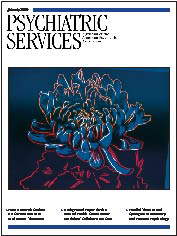One Nation Under Therapy: How the Helping Culture Is Eroding Self-Reliance
One Nation Under Therapy: How the Helping Culture Is Eroding Self-Reliance is the creation of Christina Hoff Sommers and Sally Satel, M.D. The previous works of these authors include The War Against Boys and Who Stole Feminism? (Sommers) and PC, M.D.: How Political Correctness Is Corrupting Medicine (Satel). Although these titles are suggestive of the political perspective that frames the thesis of this newest work, the fact that both authors are resident scholars at the American Enterprise Institute, a conservative think tank, leaves little room for ambiguity.
This book's title immediately begins to position the reader toward a particular vantage point. Are we truly "one nation," adhering to a "common" culture that frames how each of us, regardless of gender, race, class, or religion, lives our life? Perhaps witnessing the devastation caused by Hurricane Katrina on the poorest segment of our population inspires us to carefully consider a realistic rather than the too often simplistic and idealized answer to this question.
The phrase "under therapy" further suggests that all Americans, knowingly or unknowingly, are being made dependent on, or are obsessed with, some form of therapy. The authors' term for this dominating phenomenon is "therapism." Never mind that this is not a recognized term but, rather, one that was crafted by the authors; they make liberal use of it throughout the book. Although it is never explicitly defined in its own right, therapism is used as code for everything the authors believe is misguided and overbearing about therapy as a helping process. Therapism, according to the authors, is a doctrine that, among other things, assumes that Americans are "a diffident, anguished, and emotionally apprehensive public [that] requires a vast array of self-esteem educators, grief counselors, workshoppers, healers, and traumatologists to lead it through the trials of everyday life."
Reflection on the life circumstances of Katrina's most vulnerable victims brought into focus the fact that not all Americans have the necessary resources or the privilege that accompanies the development of a dependency relationship on one or more professional helpers and the theories they espouse. This leads to the question of whether the absence of this segment of the population from the author's picture of "the reality of American life" is just an oversight or is reflective of a politically conservative stance that disregards the presence and the needs of citizens who are, for the most part, socially and economically invisible.
Sommers and Satel have attempted, starting with the book's title, to lead the reader down a positivistic path citing evidence (80 pages of footnoted references for 220 pages of written text) and reaching what they believe is the only "right" conclusion about therapy and its "true" impact on the American way of life. Their ultimate goal is to convince you, the reader, that therapism has truly infected the quality of your life and has left you vulnerable—a truly un-American state of being. The only remaining question is, "What are you going to do about it?"
Ms. Winbush is president of VRW Consulting in Cleveland, Ohio.



